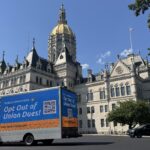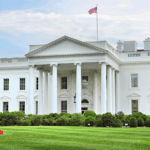On May 5, Washington Gov. Jay Inslee announced the formation of three “Safe Start advisory groups” to help guide the gradual re-opening of the state, which has been largely shut down since Inslee issued his March 23 “Stay Home, Stay Healthy” order to fight COVID-19.
The importance of the advisory groups was elevated when, two days later, Inslee disbanded the bipartisan Business Recovery Task Force composed of eight state lawmakers.
All told, 27 individuals were named by the governor to participate in the three advisory groups. In a press conference, Inslee stated,
“These groups include a really diverse group of voices, from community leaders in business, to government, to nonprofit organizations. They represent a broad cross-section of Washingtonians from both sides of the Cascades, from different generations, and they focus on different parts of the impact of the virus upon our community.”
However, Freedom Foundation research indicates most members of the advisory groups share at least one thing in common. At least 19 of the 27 advisory group members have either personally donated to Inslee’s campaign or their employer has, according to state campaign finance records. Others contribute regularly to Democrat or left-leaning candidates but have not contributed directly to Inslee’s campaign.
Traditional Democrat constituencies are well-represented among the groups’ membership, from union officials to tribal leaders to wealthy Seattleites. The “lead” for each of the three groups represents an especially prominent component of Inslee’s political base.
The Freedom Foundation’s analysis of state campaign finance records indicates that Inslee has received contributions from less than 1 percent of Washington voters, yet campaign donors constitute 70 percent of the members of his COVID-19 advisory groups.
That these individuals and organizations exercised their freedom of speech to financially support Inslee’s gubernatorial campaigns does not mean they lack sufficient qualifications or experience to help guide Washington’s COVID-19 recovery.
Nonetheless, the fact that so many members of the three advisory groups financially contribute to his campaign undermines Inslee’s claim that the groups represent “diverse voices.”
Safe Work and Economic Recovery Community Leaders Group
1. Jessyn Farrell, senior vice president, Civic Ventures, Seattle (group lead)
Ms. Farrell, a former Democrat state representative from Seattle, contributed $275 to Inslee’s campaign in 2012 and $50 in 2019. Additionally, the president of Civic Ventures contributed $250 to Inslee in 2019. Most significantly, Nick Hanauer — the billionaire founder of Civic Ventures — is a major funder of Democrat politicians and liberal causes. All told, the members of the Hanauer family have contributed $33,500 to Inslee’s campaign since 2011.
2. Larry Brown, president, Washington State Labor Council, AFL-CIO, Seattle
In 2012, Mr. Brown personally made 11 contributions to Inslee’s campaign, totaling $1,075. The Washington State Labor Council its political committees have made four campaign contributions to Inslee, totaling $3,050.
3. Jesus Alvarez, president, Southeast Central Labor Council; Teamsters Local 839, Kennewick
The Southeast Central Labor Council contributed $250 to Inslee in 2016 and $400 in 2012. It is also an affiliate of the Washington State Labor Council.
4. Mark Riker, president, Washington State Building and Construction Trades Council, Olympia
The Washington State Building and Construction Trades Council contributed $1,600 to Inslee in 2012 and $1,250 in 2015.
5. Tina Morrison, secretary-treasurer, Spokane Regional Labor Council; American Federation of Musicians, Spokane
The Spokane Regional Labor Council has made four contributions to Inslee’s campaign since 2012, totaling $700.
6. David Giuliani, CEO Washington Business Alliance; Sonicare inventor, Friday Harbor
Mr. Giuliani and his wife, Patricia, together contributed $2,750 to Inslee’s campaign between 2011 and 2016. Additionally, the CEO of the Washington Business Alliance contributed $250 to Inslee in 2016 while the government affairs director contributed $150 in 2012.
7. Latisha Hill, vice president for community and economic vitality, Avista, Spokane
Avista contributed $1,800 to Inslee’s campaign in 2012.
8. Ryan Pennington, senior director of communications and corporate affairs, Chateau Ste. Michelle, Woodinville
Mr. Pennington contributed $1,000 to Inslee’s campaign in 2019.
9. Junus Khan, founder, Carbitex, Kennewick
Neither Mr. Khan nor Carbitex appear to have financially supported the Inslee campaign.
Public Health and Health Care System Community Leaders Group
10. Brian Cladoosby, Swinomish Tribal Leader, Anacortes (group lead)
Since 2011, the Swinomish Tribe has made 10 contributions to Inslee’s campaign totaling $11,600.
11. Jane Hopkins, executive vice president, SEIU Healthcare 1199NW, Renton
Ms. Hopkins personally donated $120 to Inslee’s campaign in November 2019. Much more significantly, however, Hopkins’ employer, SEIU Healthcare 1199NW, has made eight contributions to Inslee’s campaign since 2012, totaling $11,600. The union contributed another $15,000 to “Asians and Pacific Islanders for Jay Inslee,” a union-funded political committee focused on getting Asians and Pacific Islanders to support Inslee in 2012.
12. Ben Danielson, clinic chief and senior medical director, Odessa Brown Medical Clinic, Seattle Children’s Hospital, Seattle
Mr. Danielson personally contributed $125 to Inslee’s campaign in 2012. In addition, the CEO of Seattle Children’s Hospital contributed $1,000 to Inslee’s campaign in 2011, $1,000 in 2012 and $500 in 2016. Government relations staff at the hospital contributed a further $125 to Inslee’s campaign in 2012 and $250 in 2016.
13. David Fleming, vice president, Global Health Programs, PATH, Seattle
While Mr. Fleming does not appear to have personally contributed to Inslee’s campaign, PATH’s CEO contributed $250 in 2012, $500 in 2015, and $500 each in July and September 2016. Path’s vice president contributed an additional $1,000 in 2016.
14. Hiroshi Nakano, vice president of value based initiatives, Valley Medical Center, Renton
Mr. Nakano contributed $100 to Inslee’s campaign in 2016. In addition, the CEO and CFO of Valley Medical Center contributed a combined $2,758 to Inslee in 2012.
15. Mary Selecky, former Washington state secretary of health, Colville
Ms. Selecky contributed $100 to Inslee’s first gubernatorial election campaign in 2011.
16. Sabine von Preyss-Friedman, medical director, Issaquah Nursing & Rehabilitation Center; president, Washington State Society for Post-Acute and Long-Term Care Medicine, Issaquah
Ms. Preyss-Friedman contributed $50 to Inslee’s campaign in 2012.
17. Carlos Olivares, CEO, Yakima Valley Farm Workers Clinic, Yakima
Neither Mr. Olivares nor the Yakima Valley Farm Workers Clinic appear to have financially supported the Inslee campaign.
18. Alison Poulsen, executive director, Better Health Together, Spokane
Neither Ms. Poulsen nor Better Health Together appear to have financially supported the Inslee campaign.
Social Supports Community Leaders Group
19. Sonya Campion, president, Campion Advocacy Fund, Seattle (group lead)
Between the two of them, Ms. Campion and her husband, Thomas, have made 16 contributions to Jay Inslee’s campaign since 2011, totaling $16,700. Mr. Campion is the chair of the board of Zumiez, where he was previously CEO. In addition, to the Campion’s personal donations, Zumiez’ present CEO contributed $1,000 to Inslee in 2015 and $1,800 in 2012.
20. Stacy Dym (Gillet), executive director, Arc of King County
While the governor’s announcement described Ms. Dym as the executive director of the Arc of Washington, this appears to be incorrect. The Arc of Washington’s website indicates Sue Elliot is executive director. Instead, according to its website, Ms. Dym appears to be the executive director of the Arc of King County.
According to her biography, Ms. Dym formerly worked in Inslee’s administration. She contributed $250 to his campaign in 2018 under the name “Stacy Gillet.”
21. Estela Ortega, executive director, El Centro de la Raza, Seattle
Ms. Ortega contributed $100 to Inslee’s campaign in March 2012 and another $50 in August 2012.
22. Michael Byun, executive director, Asian Counseling and Referral Service, Seattle
The recently retired CEO of Asian Counseling and Referral Service (ACRS), Diane Narasaki, contributed $100 to Inslee’s campaign in 2012 and $250 in 2016. Additionally, Juliana Wong of Bellevue-based law firm Inslee Best is the First Vice President of ACRS. The “Inslee” in the firm’s title refers to Gov. Jay Inslee’s uncle, Evan Inslee.
23. Toni Lodge, CEO, The Native Project, Spokane
Neither Ms. Lodge nor The Native Project appear to have financially supported the Inslee campaign, though Ms. Lodge is a regular contributor to Democrat and left-leaning candidates in the Spokane area.
24. Jodi Daly, president and CEO, Comprehensive Healthcare, Yakima
Neither Ms. Daly nor Comprehensive Healthcare appear to have financially supported the Inslee campaign.
25. Steve Maher, director, Our Valley, Our Future/Nuestro Valle, Nuestro Futuro, Wenatchee
Neither Mr. Maher nor Our Valley, Our Future appear to have financially supported Inslee’s campaign.
26. Loria Yeadon, president and CEO, YMCA of Greater Seattle, Seattle
Neither Ms. Yeadon not the YMCA of Greater Seattle appear to have financially supported Inslee’s campaign.
27. Thomas Reynolds, CEO, Northwest Harvest, Seattle
Neither Mr. Reynolds nor Northwest Harvest appear to have financially supported Inslee’s campaign.
Unless otherwise noted, the amounts reflected above are limited to direct contributions to Inslee’s official campaign fund. State law restricts the amount of money that any one person can contribute to a political candidate. However, many of the persons and organizations listed above have also contributed to other political committees politically aligned with but not officially affiliated with Inslee’s campaign. As a result, the above contributions likely do not reflect the full range of political support these donors have provided to the governor and his allies.












